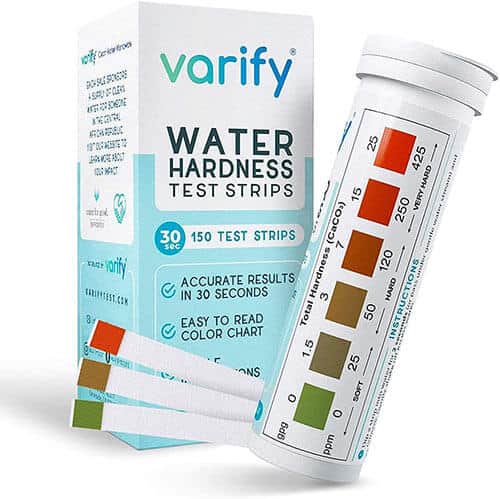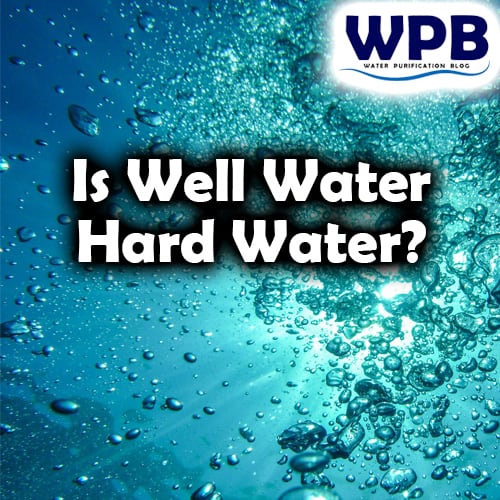Is Well Water Hard Water?
As homeowners or renters, we often take water for granted. We turn on the faucet and expect clean, safe tap water to flow out.
However, water quality and water hardness can vary greatly depending on where we live, the source of our water, and the treatment methods used. One of the most common issues with water quality is water hardness – hard water.
In this article, we will explore what hard water is, the effects of hard water, and answer the question: is well water hard water?
Table of Contents
What is Hard Water?
Hard water is water that contains a high concentration of minerals, mainly calcium and magnesium. These minerals are picked up by water as it flows through rocks and soil. The more minerals present in the water, as in mineral rich soil, the harder the water is considered. Hard water is measured in grains per gallon (GPG) or parts per million (PPM). Water that contains more than 3.5 GPG or 60 PPM is considered hard water.
Effects of Hard Water
Although water hardness doesn’t make health concerns, the effects of hard water can be seen and felt in a variety of ways. Here are some of the most common effects:
Stains and Excessive Scale Buildup
Hard water from your well water supply can cause unsightly stains like soap scum, and buildup in your sinks, toilet bowls, and showers, even your coffee pot. These stains are caused by the minerals in the water that react with soap and other cleaning agents.
Dry Skin and Hair
The minerals in hard water can make it difficult to rinse off soap and shampoo, leaving a film on your skin and hair. This can lead to dry skin that gets itchy, and brittle, damaged hair.
Appliance Damage
Hard water can cause damage to your appliances over time, especially those that use water regularly, such as dishwashers, washing machines, and water heaters. The buildup of minerals can cause these appliances to work less efficiently and eventually break down.
So, Is Well Water Hard Water?
Now to answer the question, is well water hard water? The answer is: it depends.
Well water can be hard or soft water depending on the source. If the well is drilled into an aquifer that contains a high concentration of minerals, then the well water will be hard.
If the well is drilled into an aquifer that contains fewer minerals, like calcium and magnesium, then the well water will be soft.
In most cases the water will be hard, but from my experience, two wells with the distance between them less than 20 meters, can have totally different hardness values.
How can you turn you hard well water into soft water?
Water softeners are devices that turn hard water to soft by eliminating water hardness.
Testing Your Water
If you are unsure whether your well water is hard or soft, you can have it tested. There are several ways to test your water:
Test Kits
Water testing kits can be purchased at most home improvement stores. These kits usually contain strips that change color when exposed to certain minerals in the water.

Water Hardness Test Kit – Fast and Accurate Cost Effective Water Hardness Test Strips
Save time and get accurate water test results within seconds. Simply take one of the provided test strips and dip the test strip into the water. Compare the test strip colors with the large color chart on the bottle. This is your water hardness result.
No need to visit a store or wait for someone else to test the quality of your water.
Enjoy consistently accurate and reliable results whenever you need them.
Ideal for you water softener operation control.
Laboratory Testing
You can also have your water tested at a laboratory. This is a more accurate way to test your water, but it can be more expensive.
Treating Hard Water
If your well water is hard, there are several ways to treat it:
Water Softener Systems
Water softeners remove water hardness by removing calcium and magnesium minerals from the water, and exchanging them with sodium ions. This process is called ion exchange.
After a softener water filtration system there is no more mineral buildup in your hot water heater, pipes, and everything else in contact with water.
Reverse Osmosis
Reverse osmosis is a process that removes minerals and other impurities from the water by forcing it through a semi-permeable membrane.
Chemical Treatments
Chemical treatments can be used to remove minerals from the water. However, these treatments can be expensive and may not be effective in all situations.
Conclusion
In conclusion, hard water is water that contains a high concentration of minerals, mainly calcium and magnesium.
Well water can be hard or soft depending on the source.
If you are unsure whether your well water is hard or soft, you can have it tested. If your well water is hard, there are several ways to treat it.

Who am I?
I am working as a water treatment technical manager and I have more than 25 years of practical experience in water purification.
Water purification expert
After many years of experience in water purification, I want to share some of my knowledge and get people to know the real importance of water quality.
Water purification and water treatment are very complex themes, so it is important to explain them in an easy-to-read way.
On this blog, you will find many understandable, easy-to-read information about water purification.
I hope you enjoy it, find some useful information, and thank You for reading.
More info on my work and my expertise on water purification can be found on my LinkedIn profile.






